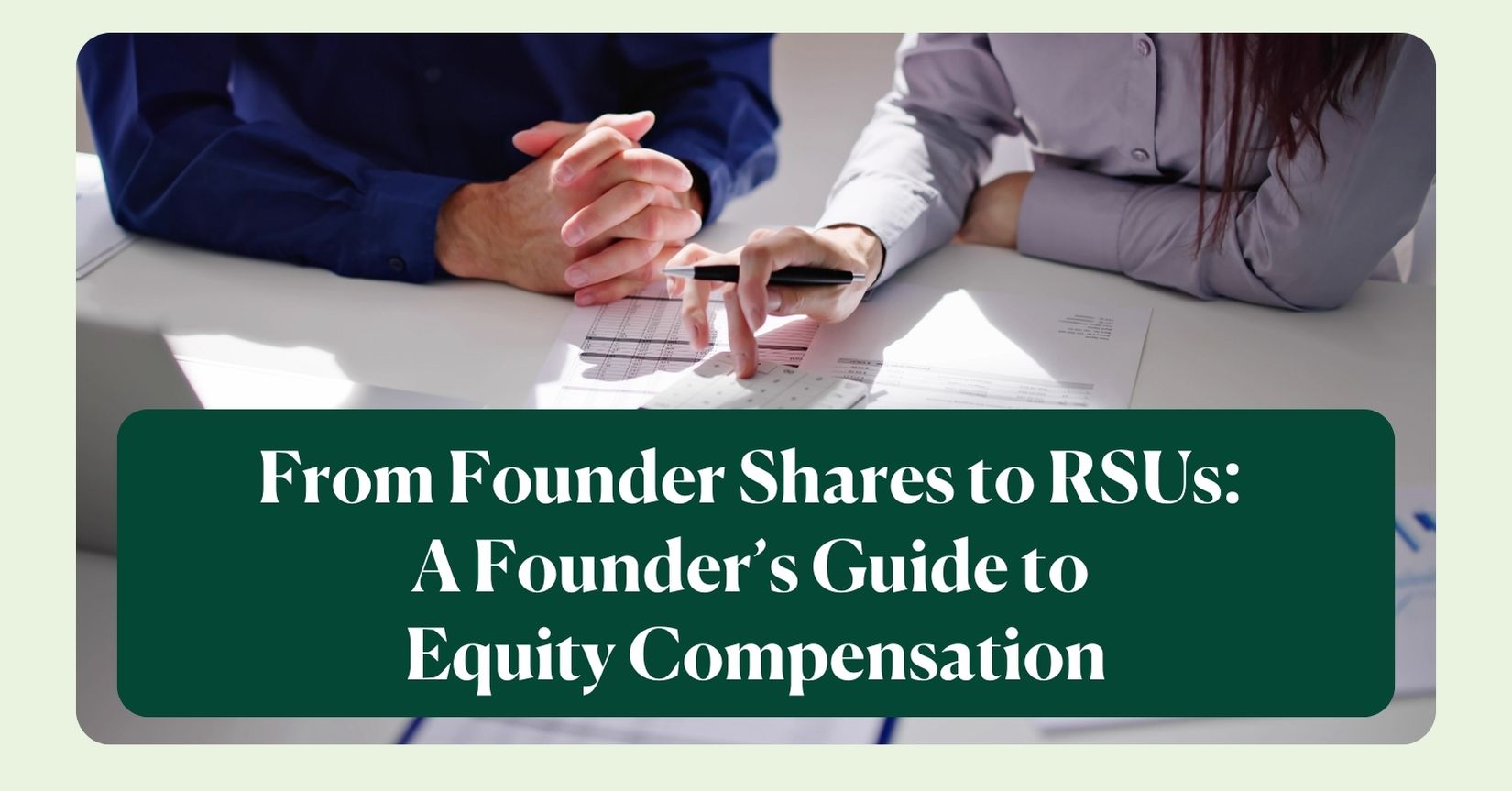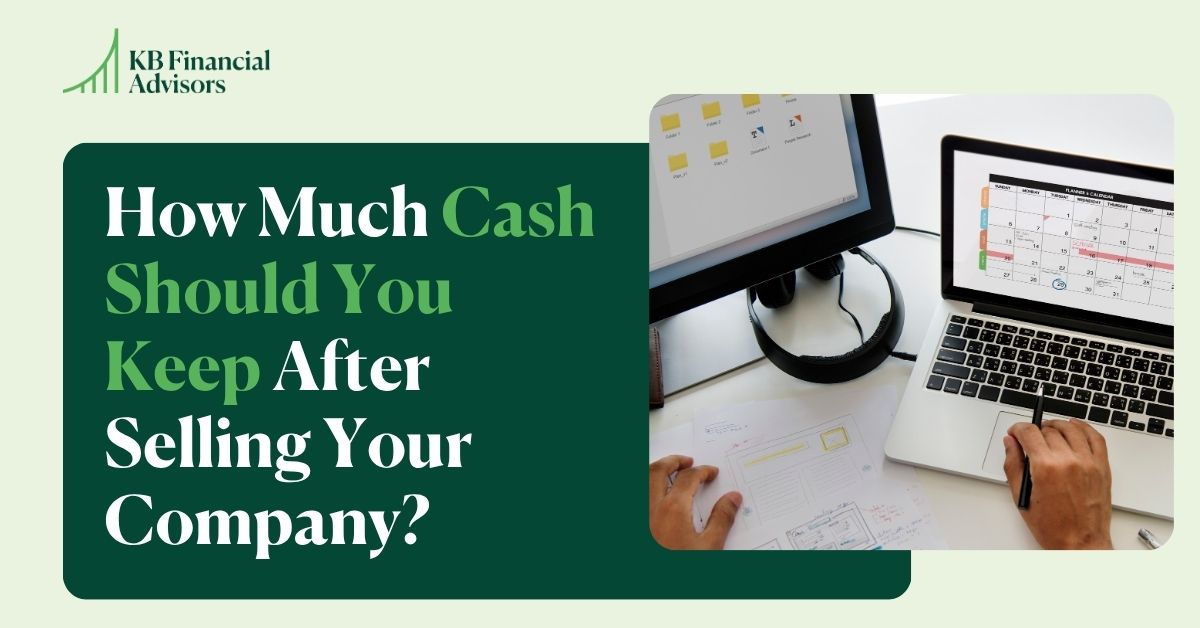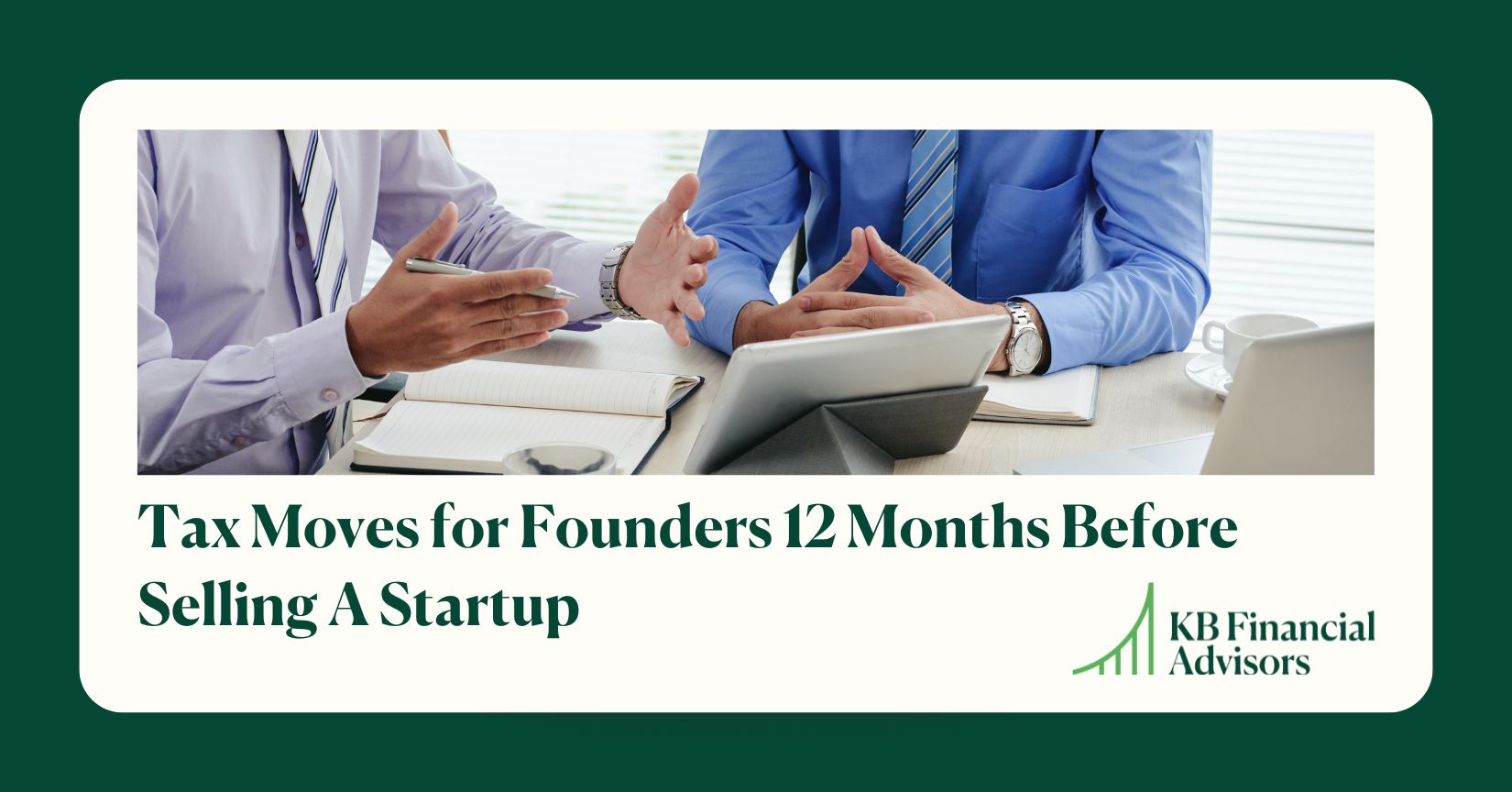If you’re a tech founder, your equity compensation isn’t just part of your package—it’s the heart of your financial future. But the way you receive that equity doesn’t stay the same forever. A lot of people think they’ll have to make a big choice between ISOs, NSOs, and RSUs, when in reality, most founders don’t get to choose at all. The type of equity you receive follows a natural progression as your company grows.
Once you understand how that progression works, and what makes each type of equity compensation different, you’ll see where the real opportunities are to save on taxes and protect what you’ve built. Let’s walk through it together.
Founder Shares Are Your Foundation
When you first incorporate your company, you and your co-founders receive founder shares. At that point, the business probably doesn’t have a valuation yet and those shares might cost pennies. They’re simply documenting who owns what. But don’t underestimate them. This is the stock that sets your ownership percentage from day one and, handled correctly, it can come with powerful tax benefits down the road.
One of the biggest benefits is Qualified Small Business Stock (QSBS). If you meet the IRS rules and hold the shares long enough, up to $10 million of your gains could be excluded from federal taxes when you eventually sell. Filing your paperwork correctly at the beginning, and keeping an eye on dilution as you raise money, can make a huge difference later.
How Stock Options (ISO and NSO) Fit In
As your company grows and starts raising money, you’ll typically begin to see stock options granted. Options give you the right to buy shares at a set price in the future. For founders, they’re usually a mix of Incentive Stock Options (ISOs) and Nonqualified Stock Options (NSOs).
ISOs are favored under the tax code. If you exercise them and hold the shares long enough (at least one year after exercise and two years after grant), your gains may qualify for lower long-term capital gains tax rates. But there’s a cap: only $100,000 of options per year can qualify for that treatment. Anything over that automatically becomes an NSO. NSOs don’t get the same favorable tax treatment, and the difference between the exercise price and the fair market value at exercise is taxed as ordinary income.
It’s completely normal to end up with a mix of both. Even if your options feel tiny compared to your founder shares, they’re still worth paying attention to. In a fast-growing company, there’s often a short window where the fair market value is close to the exercise price. Exercising during that period can help shift more of your gain to long-term capital gains and potentially save a lot of tax later.
Learn more about tax treatment for ISO and NSOs work.

RSUs Come Later
Eventually, once your company is larger and its valuation is high, it may stop issuing options and move to restricted stock units (RSUs). RSUs are simpler than options. There’s no exercise price, and you receive the full value of the shares when they vest or at a liquidity event.
If you get a choice, you may decide to skip stock options altogether and go straight to RSUs. That way, you won’t have to worry about exercising your options.
Due to how RSUs are structured, there’s usually not much you can do tax-wise until they actually vest. You’re taxed when the RSUs settle, usually at ordinary income rates. Most of your planning here revolves around making sure you have cash for the taxes and thinking about when you’ll sell the shares.
Learn more about how to avoid surprise taxes on your RSU stock.
A Common Mistake Founders Can Avoid
It’s common for founders to have the vast majority of their wealth tied up in founder shares and see options or RSUs as “small change”.
For example, you might have $30 million in founder shares and $3 million in options. It’s tempting to ignore the smaller number. But even a few million dollars of options can represent a major tax savings opportunity if you act early. We’re talking about tens of thousands to hundreds of thousands in future tax savings here. Once your company’s valuation takes off, that window can close quickly and leave you with a much bigger tax bill.
With RSUs, on the other hand, there’s often little to do until they vest. Planning ahead mostly involves cash flow for taxes and timing sales after vesting.
We Help Founders Keep The Most Of Their Equity Compensation
Knowing how your equity evolves helps you plan your taxes, your liquidity and your own financial security. If you’re a founder with founder shares, options or RSUs and you’re not sure how or when to act, we can help.
At KB Financial Advisors, we work with early to late stage tech founders to build out a tax-smart strategy to make the most of their equity compensation.
Get in touch with us today to schedule a conversation and see how much you could save.




